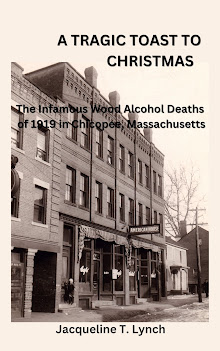The second week of July 1935 brought another round of traveling actors to New England’s numerous summer stock theaters (or town halls or barns, or whatever happened to serve as a theater in those golden months between mud and snow).
Most of the players on stage were unknowns then and continued to be unknown, but a few, like character actress Mary Wickes, who appeared in a supporting role in Stockbridge, Massachusetts in John Willard’s mystery “The Cat and the Canary”, would become familiar to moviegoers in the coming decades.
Down in Westport, Connecticut, stage veteran Ina Claire wowed first-nighters in “Ode to Liberty” by Sidney Howard, in which she had appeared on Broadway the year before. The New York Times critic noted, “Miss Claire received an ovation at each curtain.”
Ina Claire appeared in very few movies, but you may remember her as Dorothy McGuire’s mother in “Claudia” (1943), and playing opposite Greta Garbo in “Ninotchka” (1939) as The Duchess Swana. She began her career in vaudeville, working her way up to the Ziegfeld Follies. Summer stock in Connecticut wasn’t too good for her.
Over in Cohasset, Massachusetts, a comedy “Meet the Prince” by A.A. Milne, who is probably more familiar to most people as the author of the “Winnie-the-Pooh” stories, played to a capacity audience.
Down in Old Saybrook, Connecticut, the Town Hall was the venue for the drama “As Husband’s Go”, where, according to The New York Times, “The cast received numerous curtain calls.”
Over in Branford, Connecticut, the Stony Creek Players performed “Tea for Three”. Up in Skowhegan, Maine, Frankie Thomas of Hollywood B-movies and the future “Tom Corbett, Space Cadet” on TV played in “Remember the Day” with the Lakewood Players. One of the auspicious members of the audience that evening was Humphrey Bogart.
It was an era when staying at home on a summer evening shut up in air conditioning was not favored, and not possible. The summer dress, the white trousers, the straw hats were donned and each newcomer to the audience was announced by the slap of the screen door in the back of the house (or barn, or town hall, or tent) where they sold tickets.
Even more telling and poignant, is that The New York Times gave space to summer stock performers and audiences in small towns in New England that warm second week of July 1935.
Tuesday, July 19, 2011
Summer stock, July 1935
Posted by
Jacqueline T. Lynch
at
7:32 AM
![]()
Labels: 20th Century, New England, theatre
Subscribe to:
Post Comments (Atom)









No comments:
Post a Comment